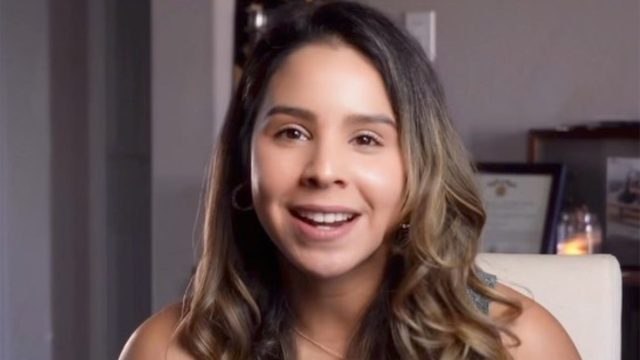Coach Lost 28 Lbs in 4 Months When She Stopped Making These 4 Mistakes

Do you want to lose weight but aren't sure which habits are hurting or helping you? One expert has some suggestions. Luisana Carrero is a nutrition coach and social media influencer who knows how to lose weight and keep it off from personal experience. In a new social media post, she opens up about her journey. "4 mistakes I had to stop making before I could finally lose 28 pounds in 4 months," she writes. "I used to think something was wrong with me, blaming my hormones and lack of willpower…Until I realized I was making these mistakes."
Mistake: Eating Clean But Not Paying Attention to Calories
Her first mistake? "Eating clean without paying attention to the amount of calories I was consuming," she says. "I thought eating clean meant I'd automatically lose weight 😅, but I didn't realize that even healthy foods can lead to weight gain if you're eating too much."
Fix: She Used a Macro Calculator
How did she correct this mistake? "Instead, I started measuring my portions to ensure I was actually in a calorie deficit," she writes. She recommends using a macro calculator.
Mistake: Rewarding Herself with Cheat Meals
Another mistake she made? Rewarding herselff with "cheat meals," she says. "I'd be 'good' all week, then go overboard on cheat meals, turning one meal into an entire weekend of indulgence.
RELATED: 10-Min Walking Workout Burns Fat at Home, Says Coach
Fix: Eating Mostly Healthy But Including Food She Loves
What does she do instead? "I incorporated a healthy balance of the foods I love into my daily diet (10-20% of my total calories). This made dieting less stressful and helped me stay consistent long enough," she reveals.
Mistake: Neglecting Daily Movement
Another mistake she made? "Neglecting daily movement," she writes. "I used to sit all day and assumed my 1-hour workouts were enough, but they weren't."
Fix: Daily Walks
Her fix was adding steps to her day. "Walking became a non-negotiable for me. I committed to hitting 10,000 steps every day, I do this by going on walks or using my walking pad," she says.
Mistake: Surrounding Herself with People Who Didn't Support Her Goals
Her final mistake? "Surrounding myself with people who didn't support my goals," she writes. "'Friends' would make fun of my choices, and I let it get to me."
Fix: Setting Boundaries
How did she fix this? "I started setting boundaries and distanced myself from negativity. Prioritizing my own health and happiness became my focus," she writes.
RELATED: 30 Best Protein Foods That Melt Fat Almost Instantly
These Small Changes Made a Big Difference
The bottom line? "These small but impactful changes completely transformed my life and I'm sure they'll help you too," she writes. And if you enjoyed this article, take advantage of these 15 Quick Ways to Lose Body Fat Percentage in a Week.




